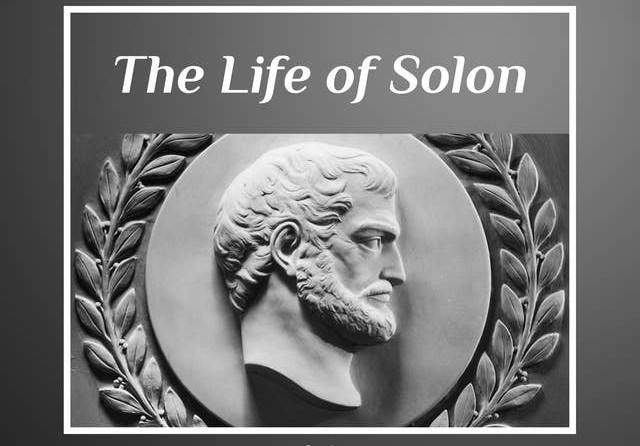The most famous lawgiver in history: Who is Solon?
According to many people, Solon is considered the person who laid the foundations of today's democracy with the laws he introduced after becoming the Archon (lawmaker) of Athens. Because his laws appealed to very wide masses in terms of inclusiveness.

The son of Eksekestides is known as Solon of Salamis. Although his birth, death, and date are not exactly known, he is an Athenian poet, thinker, legislator, and one of the seven sages, who is estimated to have lived in 640-560 BC. It is estimated that he died in Cyprus at the age of 80. Although he comes from a middle-class family, he is not very wealthy. On the other hand, Solon, who became rich over time by trading oil in the Mediterranean, had the opportunity to see many different places, cultures, and people thanks to these trade trips. Again, during these trade trips, he began to gain a reputation for his honesty and reliability. He returned to Athens after his commercial trips.
SOLON IN ATHENS
When Solon came to Athens, the situation in society was not encouraging at all. Nine aristocrats called archons ruled Athens, and these rulers were also elected by the archons. Poverty and injustice had become a natural part of society and therefore were no longer considered strange.
Solon was an archaic Athenian statesman, lawmaker, political philosopher, and poet. He is one of the Seven Sages of Greece and credited with laying the foundations for Athenian democracy. Solon's efforts to legislate against political, economic and moral decline resulted in his constitutional reform overturning most of Draco's laws.
The aristocratic class was active in the state administration and they used all kinds of methods to protect their own interests, even though they were not in the best interest of the people. These aristocrats, whose only goal was to have influence and money, favored their families. The state of society and Athens were not things they cared about very much. At that time, aristocrats who held large lands were called "Eupatrides".
When Solon came to Athens, his homeland Salamis was occupied by the Megarians. The Athenians were defeated in many wars fought between the Athenians and the Megarians. For this reason, they decided to punish with death anyone who suggested fighting for Salamis. However, Solon would not leave his homeland like this and would rush into the agora, pretending to be crazy with a wreath on his head. He would recite a poem in the agora that gave all Athenians the passion to fight again. After these verses of Solon, the Athenians fought with the Megarians once again and took Salamis back from them. Solon, who became famous in Athens after this incident, persuaded them to capture the Thracian Cherronesus as well.
SOLON, THE NEW ARCHON OF ATHENS
We mentioned above the large landowners Eupatrides. Of course, at that time, the people in Athens could not stand this situation any longer and began to speak out against these arbitrary practices of the Eupatrides. After this, long party fights began between the aristocrats and the people. However, these struggles never reached a conclusion. Thereupon, they chose Solon, whose fame was gradually spreading in Athens, as the mediator and gave him great powers, as the Archon. This was the event that led to the beginning of the great changes that Solon would make in Athens. Because nothing in Athens would ever be the same again...
SOLON THE LAWMAKER
According to many people, Solon is considered the person who laid the foundations of today's democracy with the laws he introduced after becoming the Archon (lawmaker) of Athens. Because his laws appealed to very wide masses in terms of inclusiveness. When Solon received the authority to legislate, he passed a law that put an end to the tradition of using debtors as slaves in exchange for unpaid debts, which he had previously seen as one of Athens' biggest problems. With this law, no one had to be a slave in return for their debts. Thus, Solon canceled the debts of many people. This reform was called Seisachtheia (Freedom from burden and burden) in history.
In addition, Solon abolished the privileges brought by the Draconian laws to the nobles and granted the rights to all Athenian people, such as going to court and filing a lawsuit. In other words, on the one hand, it has taken a big step towards closing the differences between classes and strengthening democracy.
Another job is; The aim was to give back the land to the villagers whose land was taken away from them. Solon, who encouraged the villagers to produce olive oil, also banned the export of products other than olive oil.
